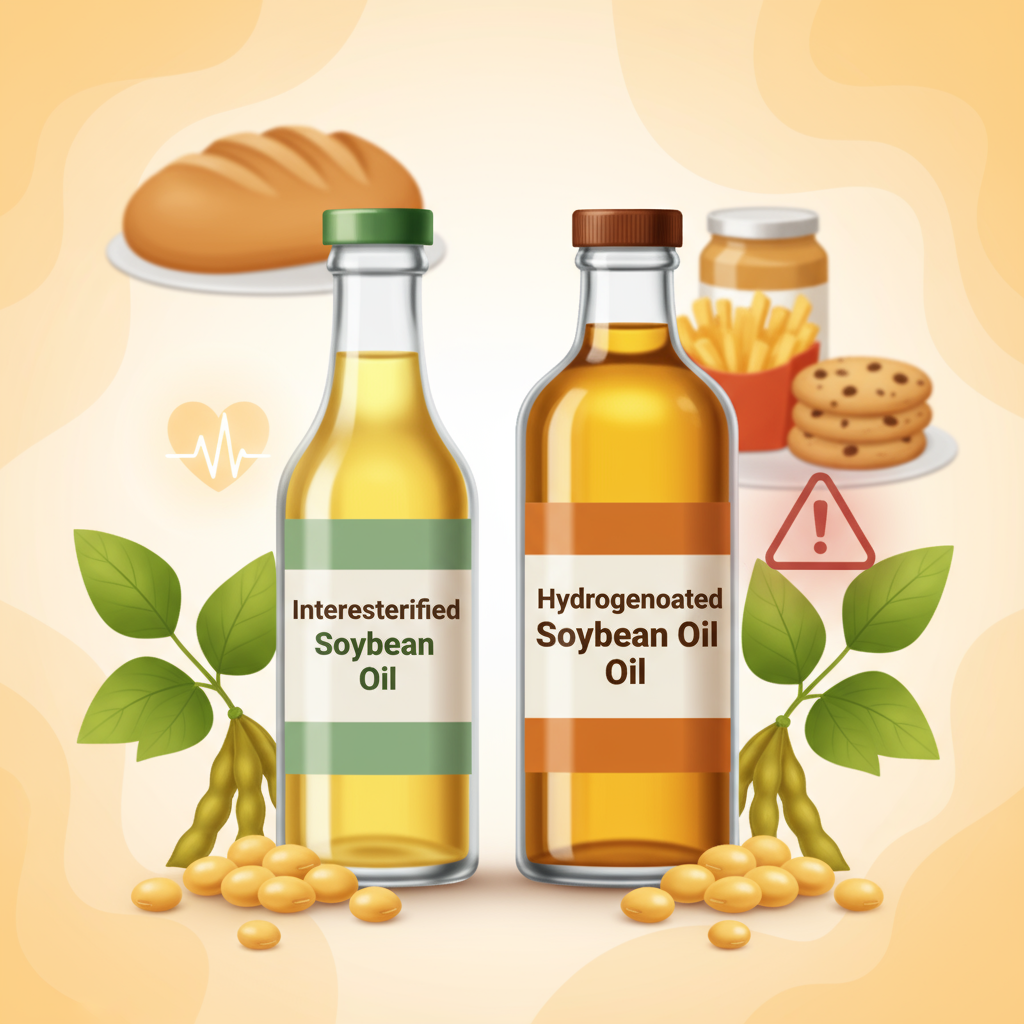
Does Soybean Oil Contain Soy? Understanding the Relationship
TL;DR
Soybean oil, derived from soybeans, is a common cooking oil that may raise concerns for individuals with soy allergies. While highly refined soybean oil typically does not contain significant amounts of soy protein and is generally considered safe for those with soy allergies, cold-pressed or unrefined soybean oils may contain proteins that can trigger allergic reactions. Always check labels and consult with a healthcare provider regarding soy allergies.
Soybean oil is one of the most widely used vegetable oils in cooking and food processing. However, many people wonder: Does soybean oil contain soy? This question is particularly relevant for individuals with soy allergies, as soybeans are a common allergen. In this article, we will explore the composition of soybean oil, its safety for those with soy allergies, and provide guidance on how to read food labels effectively.
Soybean oil is extracted from the seeds of the soybean plant (Glycine max). It is commonly used for frying, baking, and as an ingredient in various processed foods. The oil is favored for its neutral flavor and high smoke point, making it versatile in culinary applications.
Highly Refined Soybean Oil: This type undergoes extensive processing, which removes most of the proteins, including those that can cause allergic reactions. Studies indicate that most individuals with soy allergies can safely consume highly refined soybean oil without experiencing adverse effects.
Cold-Pressed or Unrefined Soybean Oil: This oil is extracted without the use of heat or chemicals, maintaining more of the natural proteins found in soybeans. This form can contain soy protein, which poses a risk for individuals with soy allergies.
While soybean oil is derived from soybeans, the key concern for those with soy allergies is the presence of soy protein.
According to research, highly refined soybean oil contains negligible amounts of soy protein, typically not enough to trigger allergic reactions in most individuals. The Food Allergen Labeling and Consumer Protection Act (FALCPA) does not require this oil to be labeled as an allergen, as it is deemed safe for consumption by those with soy allergies.
In contrast, cold-pressed or unrefined soybean oil retains more of the soybean's natural proteins. Individuals with soy allergies are advised to avoid these types of oils, as they may cause allergic reactions due to the presence of soy protein.
For individuals with soy allergies, understanding how to read food labels is crucial. Here are some tips:
In summary, while soybean oil is derived from soybeans, its safety for individuals with soy allergies largely depends on the type of oil. Highly refined soybean oil is generally safe as it contains minimal soy protein, whereas cold-pressed or unrefined soybean oil should be avoided. Always consult with a healthcare provider regarding dietary restrictions and read labels carefully to ensure safety.
Soybean oil is derived from soybeans, but highly refined soybean oil contains negligible amounts of soy protein, making it generally safe for individuals with soy allergies. In contrast, cold-pressed or unrefined soybean oil retains more soy protein and should be avoided by those with allergies.
Yes, highly refined soybean oil is considered safe for most individuals with soy allergies, as it undergoes processing that removes most proteins, including allergens. It is not required to be labeled as an allergen under the Food Allergen Labeling and Consumer Protection Act (FALCPA).
Individuals with soy allergies should avoid cold-pressed or unrefined soybean oil, as these types retain higher levels of soy protein, which can trigger allergic reactions.
When reading labels, look for "Contains Soy" statements, identify alternative names for soy (like soy lecithin or tofu), and be cautious of advisory labels such as "may contain soy." Always check the ingredient list thoroughly to ensure safety.

Is Soybean Oil Low FODMAP? A Comprehensive Guide
TL;DR Soybean oil is considered low FODMAP and safe for consumption during the elimination phase of the low FODMAP diet. This is because oils, including soybean oil, do not contain carbohydrates, which are the components responsib...

Interesterified Soybean Oil vs. Hydrogenated Soybean Oil: What You Need to Know
TL;DR Interesterified soybean oil and hydrogenated soybean oil are two types of fats used in food production. Interesterification involves rearranging fatty acids in triglycerides to modify their properties without creating trans ...

Interesterified Soybean Oil vs. Hydrogenated Soybean Oil: What You Need to Know
TL;DR Interesterified soybean oil and hydrogenated soybean oil are two types of fats used in food production. Interesterification involves rearranging fatty acids in triglycerides to modify their properties without creating trans ...

Is Soybean Oil Good for You? A Comprehensive Guide
TL;DR Soybean oil is a widely used cooking oil that offers several health benefits, including a potential reduction in the risk of coronary heart disease due to its unsaturated fat content. It contains both omega-3 and omega-6 fat...
Ready to source an ingredient?
Whether you’re struggling to find the perfect ingredient, racing against the clock, or simply don’t have the bandwidth to manage sourcing — we’ve got your back.
Get a Free Sourcing AuditSavings is BIG but the relationship value is MASSIVE! Glad we met when we did. Looking forward to building this partnership with you and David.
Yohan, here to say you’re one of my favorite suppliers. Aside from your high quality ingredients, you’re so great to work with. Thanks for all the help you’ve given us this year.
Working with Global Savors and Yohan has been very smooth when sourcing ingredients. They offer a great selection and and cost savings! Yohan has been awesome to work with and we look forward to continuing business together.






Global Savors is your trusted partner for seamless ingredient sourcing, offering end-to-end solutions that streamline procurement, simplify logistics, and elevate your supply chain efficiency.
View More News
© 2026 Copyrights by Global Savors. All Rights Reserved

